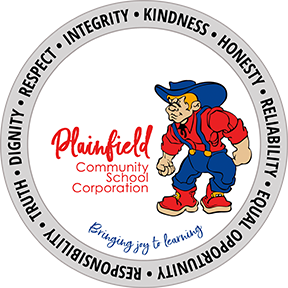A group of about 15 local residents have spent one evening a month at the Plainfield Community School Corporation's Administration Building since August, going through a program known as Allies for Education. Others might think of it as Public Education 101.
The program began four years ago, when School Board president, Scott Flood, brought the idea to the table. "There are so many myths about how schools run, and just as many complex rules and laws,” Flood explained. “Given the role public schools play in our communities, I thought this would be a great way to bring people together to learn more about how things work behind the scenes. It’s a nice opportunity to brag on the team we have here at Plainfield Schools, but it also allows us to share the challenges we face, and create allies in the process.”
Topics include the roles of the School Board and the Superintendent, and the distinct separation of their duties. Many people think the School Board has tremendous power over the district’s schools, when in reality, their role is clearly defined, and more limited than most think.
Session Two focuses on the financial side of public education. Assistant Superintendent Jud Wolfe leads the group through the very complex and often confusing rules and processes that public schools must follow if they want to stay on the right side of the law and the auditors. The conversation includes things like “you say you want to increase teacher pay, but you’re renovating a school. Why not use the renovation dollars to pay teachers more?” State law won’t allow that, as we can only pay teachers out of an allocation set by the state, whereas capital improvement dollars come from local revenues. This is a very black-and-white explanation of a topic that becomes more and more complex every year, but Wolfe does a great job of boiling it down to everyday language.
Next up, Assistant Superintendent for Student Learning, Pat Cooney, brings his team to illustrate the steps involved in actually teaching students. From Little Quakers Academy through Commencement, from everyday lessons to mandated assessments, from general education classrooms, to High Ability, Special Education, to trades and college and career prep, to STEM, the arts and everything in-between, including courses that prepare young adults to become independent. Yes, you can learn how to sew on a button, prepare basic meals, balance a checkbook and prepare for interviews. Those classes may not look quite the same as they did 40 years ago, but they still exist.
In the fourth month, the topic includes the many support systems necessary to educate students. Food services, transportation, daily medical support provided by having a registered nurse in each school, and the growing need for mental health services - while these may be “behind-the-scenes,” we wouldn’t be successful without the outstanding people who provide these vital services.
Finally, the fifth and final session focuses on how we get things done. How we work with the Indiana General Assembly, what economic development and growth mean to a school system, and how the school and town work together to maintain the outstanding quality of life and schools that we enjoy.
Flood’s vision, as mentioned above, included dispelling myths, and in last night’s final session he did just that. Public schools, including those in Plainfield, do recite the Pledge of Allegiance daily. Not only do we believe it’s the right thing to do, Indiana statute requires that we do so. And no, we haven’t banned Christmas music or Halloween parties. Our schools are very festive, and part of our mission, “Bringing joy to learning,” includes having fun. From Christmas music to elves to a forest of Christmas trees with ornaments created by students, the holidays are alive and well in our schools.
If you’re interested in joining next year’s Allies for Education program, please drop an email to Cindi McGinley (cmcginley@plainfield.k12.in.us) or call 317-839-2578. We’ve love to have you!

